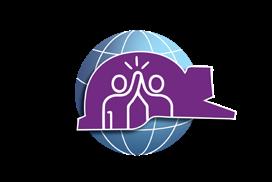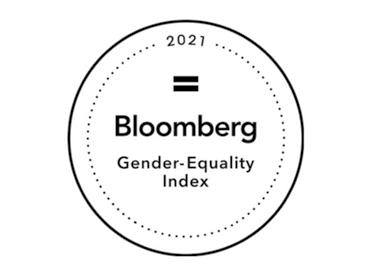THE DIVERSITY IN MINING ISSUE | 2021
INCLUSIVITY
INVOLVING
DISABLED PEOPLE
IN MINING
W
ith such a significant number of persons with disabilities in the country, it is imperative that they are afforded opportunities to be economic participants across various sectors of the country, including the mining sector. This means including persons with disabilities through direct employment or affording them business opportunities. Different mining companies have various initiatives aimed at including and accommodating disabled persons in the industry. Here are a few:
Harmony Gold: Preferential Procurement Strategy Harmony Gold’s Preferential Procurement Strategy and Enterprise Supply Development Framework was approved in 2019 and formulated with the assistance of an external consultant. “We devised a strategy and it was approved by Harmony’s board of directors in the social and ethics committee,” says Tom Dewet, supply chain manager, Harmony Gold. Using enterprise development initiatives, the strategy includes an internal process to assist potential contractors with challenges they may encounter. The strategy is meant to increase participation of previously disadvantaged designated groups in the mining industry’s economy – which includes persons with disabilities. To ensure that persons with disabilities are not excluded from economic participation, the strategy prioritises companies owned by persons with disabilities or employs disabled people. “Where those people can do the work, they are allowed to do so. When it comes to adjudication processes, the fact that a person is disabled is in no way or form held against them,” says Dewet.
According to the 2011 Census, approximately 7.5% of South Africa’s population consists of persons with disabilities. The South African Human Rights Commission states that “people with disabilities are at risk of economic isolation with no prospect of securing employment”. In 2019, Anglo American announced its membership of The Valuable 500, a worldwide movement to put disability inclusion on board agendas and encourage global business leaders to recognise the value of the world’s 1.3 billion people living with disabilities. Launched at the World Economic Forum’s Annual Summit this year, The Valuable 500 now has more than 200 members. “Our people are critical to all that we do and we strive to promote an inclusive culture with equality of opportunity for all – regardless of gender, race, ethnicity or disability – enabling us to appoint the right person to the right role, so that everyone can bring their full self to work,” says Mark Cutifani, chief executive, Anglo American. As part of the commitment to The Valuable 500, Anglo American will continue to foster an environment that involves, supports and enables colleagues living with a physical disability, learning difficulty or mental health issue to reach their full potential. The company’s Enabling You colleague networks, which were launched in 2018, continue to provide education and awareness, extending support to those colleagues who also care for someone living with a disability. “Through our commitment to The Valuable 500, we look forward to working with the organisation and its community of members to do more to put disability on the business leadership agenda,” Cutifani says. Anglo American will continue to implement its global mental health framework to increase mental health awareness, support colleagues, remove any stigma, and encourage openness to build and sustain a safe and positive workplace, with 5% of global colleagues being trained mental health first aiders by the end of 2020. Caroline Casey, founder of The Valuable 500, says, “Anglo American has already made great strides in ensuring
21










